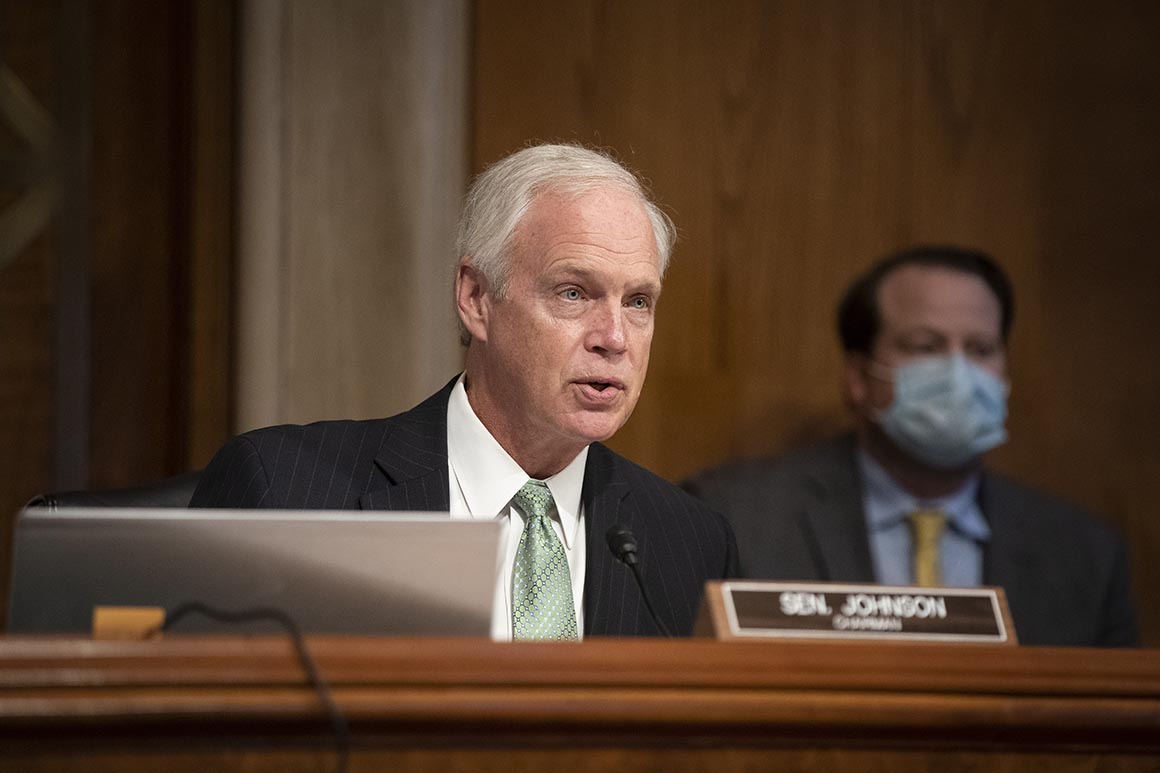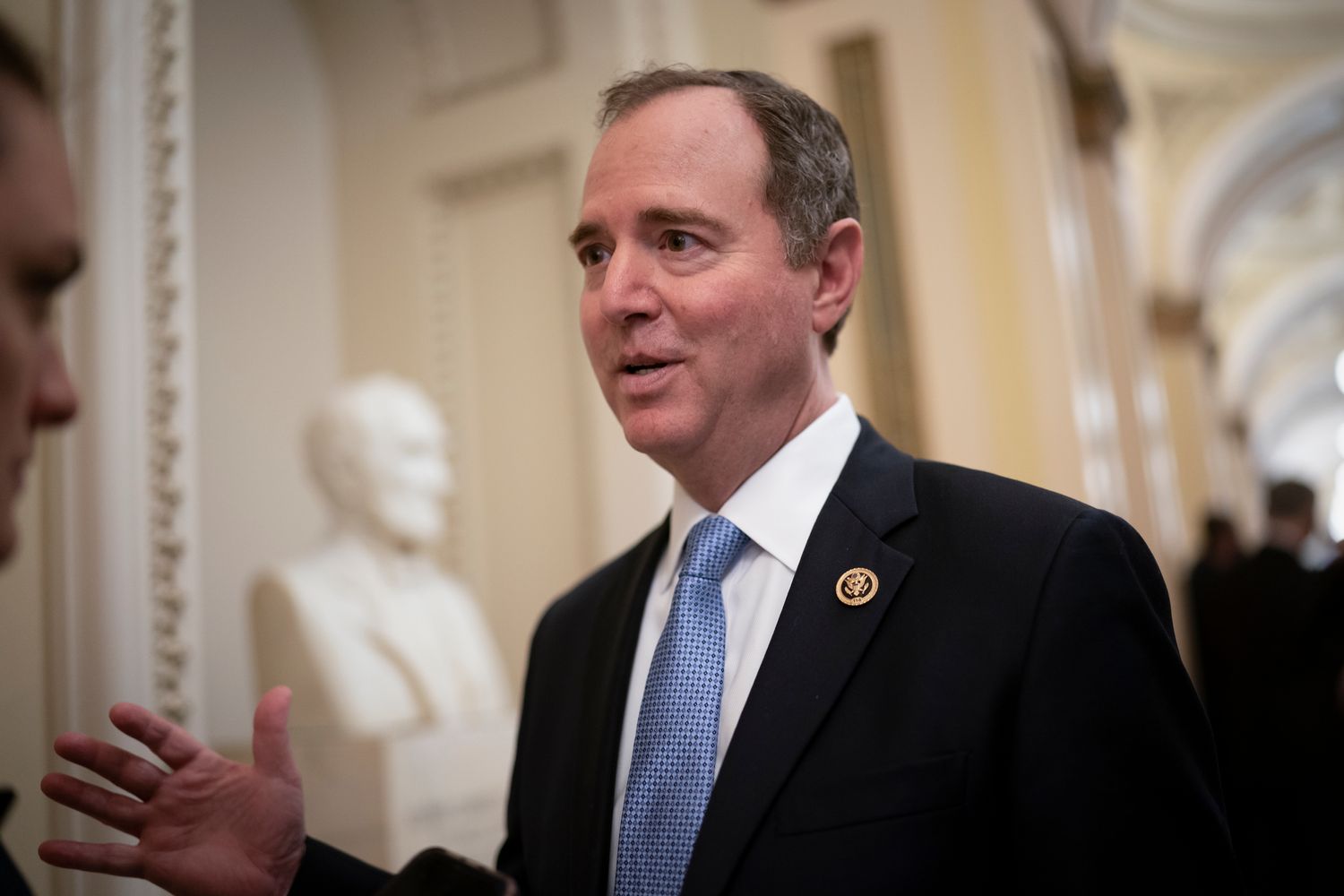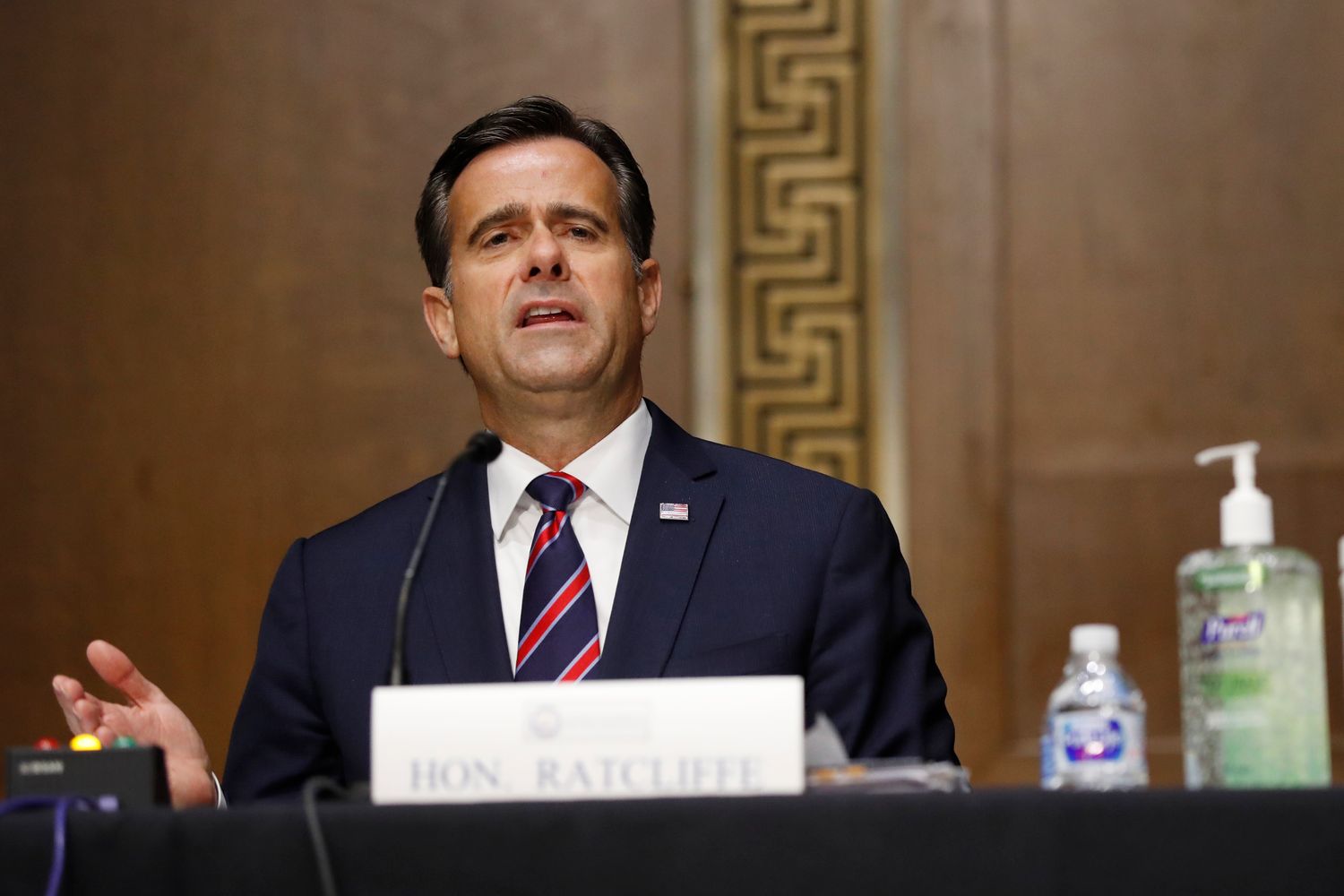Democrats and Republicans are sharply at odds over allegations that Russia paid bounties to the Taliban to kill U.S. troops — with the issue quickly becoming politicized as lawmakers from both parties drew starkly different conclusions following separate briefings at the White House Tuesday.
Senior House Democrats left a White House briefing Tuesday morning saying they were given no “substantive information” about intelligence that the Kremlin paid Taliban militants to kill American troops overseas and allegations that President Donald Trump sat on the information for months.
But Senate Republicans took a much different tack — emphasizing that intelligence agencies had not come to a consensus on the matter, and blasting “illegal leaks” to The New York Times and other publications that first reported on the disturbing intelligence assessments. They also defended Trump over his claims that he was unaware of the matter before it was reported publicly last week.
“Our intelligence agencies didn’t agree with each other, which is pretty well-established now,” said Senate Armed Services Committee Chairman Jim Inhofe (R-Okla.), who attended the White House briefing Tuesday. “Intel was continuing to be assessed before [Trump] was brought into it.”
Sen. Ron Johnson (R-Wis.), who chairs the Homeland Security Committee, went further, saying the initial reports were “completely false” because the intelligence about alleged Russian bounties was “unverified and completely not actionable.” As a result, Johnson said, senators were told that Trump was never orally briefed on the matter.
“How thick is that?” Johnson quipped, referring to the briefing book as he defended Trump for not reading every detail. “It was not to the level of verification that it was highlighted in the president’s daily briefing.”

Republicans’ defenses of the president underscore evidence and reporting suggesting that Trump did, in fact, receive details about the alleged Russian bounty program in a written intelligence briefing as early as February. Trump has, by numerous accounts, often declined to read his written brief. On Tuesday, White House press secretary Kayleigh McEnany said the president has been briefed “on what is unfortunately in the public domain because of The New York Times and the irresponsible leak."
But intelligence experts have emphasized that information included in the President’s Daily Brief is highly vetted, even if there are disagreements among agencies. And Democrats assert that just because Trump may not have read his briefing doesn’t mean he wasn’t briefed on the intelligence.
Trump “is relying on ‘I don’t know,’ ‘I haven’t heard,’ ‘I haven’t been briefed.’ That’s just not excusable,” House Intelligence Committee Chairman Adam Schiff (D-Calif.) said after the briefing Tuesday.
The sharply divergent interpretations, combined with Republicans’ reluctance to break from Trump in the run-up to an election, threaten to mire Congress in further dysfunction in the face of new evidence of a grave national security threat. And the episode has already further eroded efforts to keep intelligence-gathering and sensitive national security information separate from typical Washington infighting.
For example, GOP senators who attended the White House briefing also said the Gang of Eight — the leaders of the House, Senate, and both intelligence committees — had access to the same information in written forms “months ago,” and they charged that Democrats were trying to use the issue as a political cudgel against Trump and Republicans. A senior Democratic aide said while hundreds of pages are sent to the secure briefing room in the Capitol each day, the Gang of Eight was never briefed on this.
“The Democrats are really making a big deal of this. They had access to that same sort of information months ago. So what’s the deal?” Sen. Joni Ernst (R-Iowa) said.
“This is going to continue to be a Washington, D.C. story — one where they try to make the president look bad,” added Inhofe. “Because here is what we also know, and we don’t need any special intelligence to tell us: Putin is a murderer and a thug. He hates America and our interests.”
But House Majority Leader Steny Hoyer (D-Md.), who led the group of nearly a dozen Democrats to the White House, criticized the Trump administration for not providing the leaders of various intelligence agencies — relying instead on White House officials — to elaborate on the allegations. The officials tasked with briefing the Democrats, Hoyer said, expressed their opinion of the allegations but did not share the underlying evidence.
“What we need is a briefing by the intelligence community to give us their assessment of the credibility of this information,” Hoyer told reporters in a press conference in the Capitol after the briefing. “We did not receive any new substantive information about the intelligence.”
Schiff and Foreign Affairs Committee Chairman Eliot Engel (D-N.Y.), who also attended, echoed Hoyer’s concerns. Schiff said he is seeking an in-person briefing from the intel community as well as documentation.
“The right people to give the briefing really were not in the room,” Schiff said.

The dueling narratives from Republicans and Democrats emerged Tuesday after the bounty allegations, first reported Friday by The New York Times, raised alarm in both parties about a grave threat to American troops — and demands for a U.S. response if the allegations are corroborated. A small group of House Republicans were briefed on the intelligence reports Monday.
The briefings, according to participants, were led by White House chief of staff Mark Meadows and included Director of National Intelligence John Ratcliffe, National Security Adviser Robert O’Brien, senior National Security Council aide Michael Ellis, top NSC counsel John Eisenberg and Thomas Williams, the National Security Council’s senior director for European and Russian Affairs.
The Russian bounty controversy has escalated as Trump insisted he was never briefed on the matter — despite news reports to the contrary — and took to Twitter to suggest it was a “hoax” aimed at smearing him.
Republicans, though, have not endorsed that assessment, even as they defended Trump’s reactions to the reports. Sen. Marco Rubio (R-Fla.), the acting chairman of the Senate Intelligence Committee, said the publications that reported on the claims did not deserve blame, and emphasized that American troops always face threats to their safety overseas.
“I’m not concerned that the administration is not prepared to handle any of the threats that our troops are facing anywhere in the world,” Rubio told reporters.
Ratcliffe is expected to appear on Capitol Hill to meet with senators on Wednesday, Rubio added. Sen. Mark Warner (D-Va.), the vice chairman of the Intelligence Committee, indicated he was prepared to ask Ratcliffe about Trump’s specific knowledge of the alleged bounties.
“It’s the responsibility of the intelligence community, or the intelligence leadership to prioritize what gets to a president,” Warner said, adding: “This whole circumstance around these stories begs the question of why this administration continues to kowtow to Vladimir Putin and, in essence, not treat Russia as an adversary.”
Democrats said they were left with the impression that Trump was not briefed on the intelligence, though they declined to provide details. They continued to express skepticism about his claims of ignorance, and said even if the intelligence was not absolutely conclusive, Trump should have been briefed on it as he weighed diplomatic relations with Russia.
“If the president doesn’t read, the president doesn’t read, and they should know that by now,” Schiff said of the president’s daily intelligence reports. “If you’re going to be on the phone with Vladimir Putin, this is something you ought to know.”

For Democrats, the episode was another example of Trump genuflecting to Russian President Vladimir Putin. Though the Times reported Trump was briefed on the intelligence as early as February, Trump has since sought Russia’s reentry into the G7 and spoken repeatedly with Putin by phone.
Democrats are now reiterating their demands for a full briefing beyond the group that attended on Tuesday — and to hear directly from intelligence officials. Hoyer said he repeatedly asked White House officials for such a briefing, but left without an assurance that it would happen.
Trump has denied knowing about the intelligence despite it being included in a written briefing for the president in February, according to the Times. And White House officials defending the president seem to have adopted a strategy of parsing words — saying that Trump wasn’t briefed because the information wasn’t vocally conveyed to him, discounting the written intelligence briefing the president receives.
In a statement overnight, O’Brien said the intelligence didn’t rise to the level of informing the president, despite reports of the administration being aware of the bounties for months.
“Nevertheless, the administration, including the National Security Council staff, have been preparing should the situation warrant action,” O’Brien said.
Despite O’Brien’s statement, the intelligence community found the bounty claims credible enough to include in a classified CIA intelligence document distributed to U.S. officials across the world, according to the Times.
O’Brien’s comments came after a day of shifting explanations from Trump and the White House. Though top officials said on Saturday Trump hadn’t been briefed, Trump tweeted Sunday night that “intel” had informed him the allegations were not “credible.” Yet by Monday, McEnany continued to insist the president hadn’t been briefed, even as briefings were being arranged for lawmakers.
Sarah Ferris and Marianne LeVine contributed to this report
Source: politico.com
See more here: news365.stream






